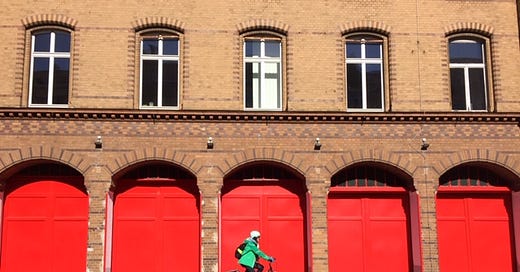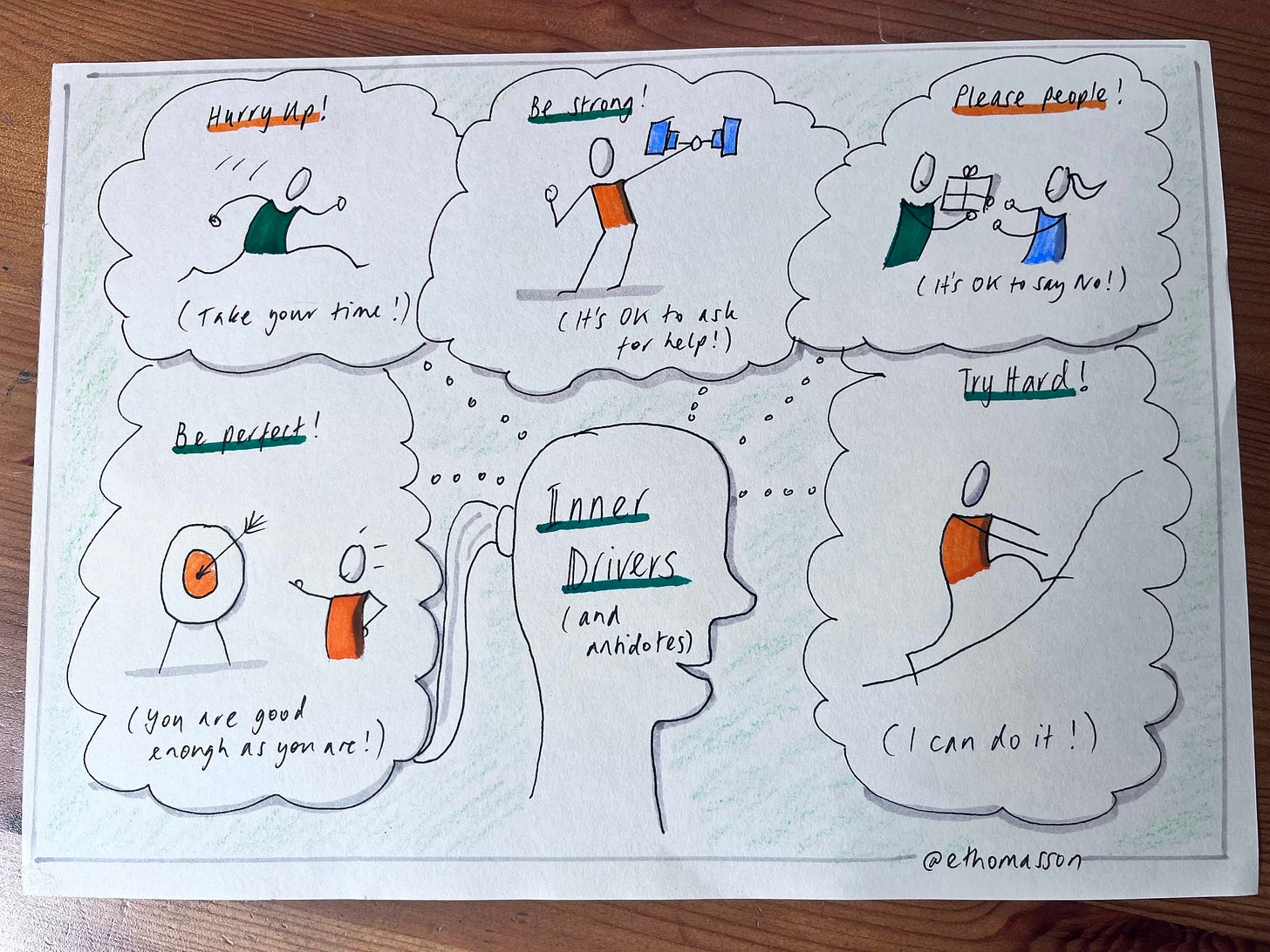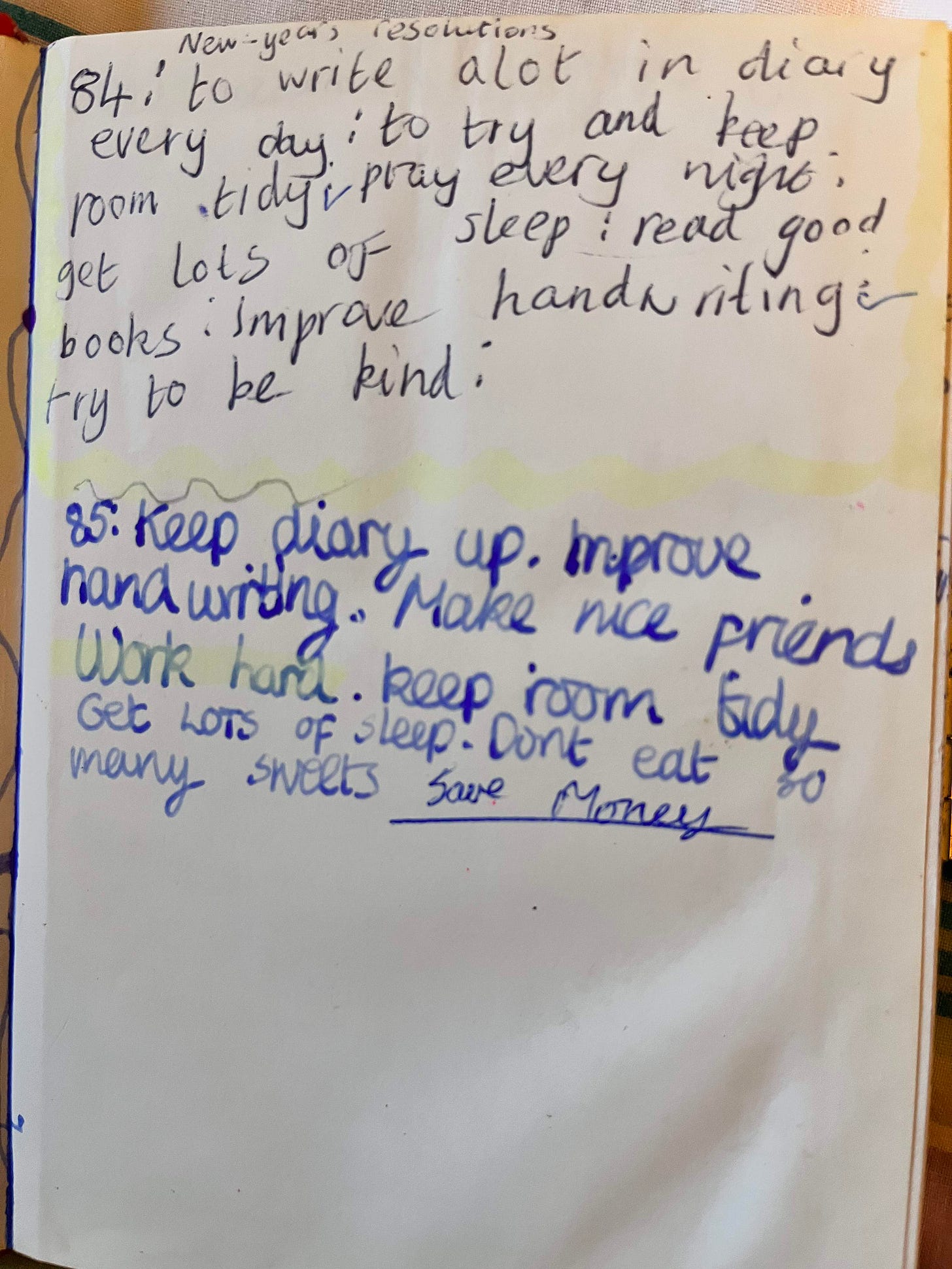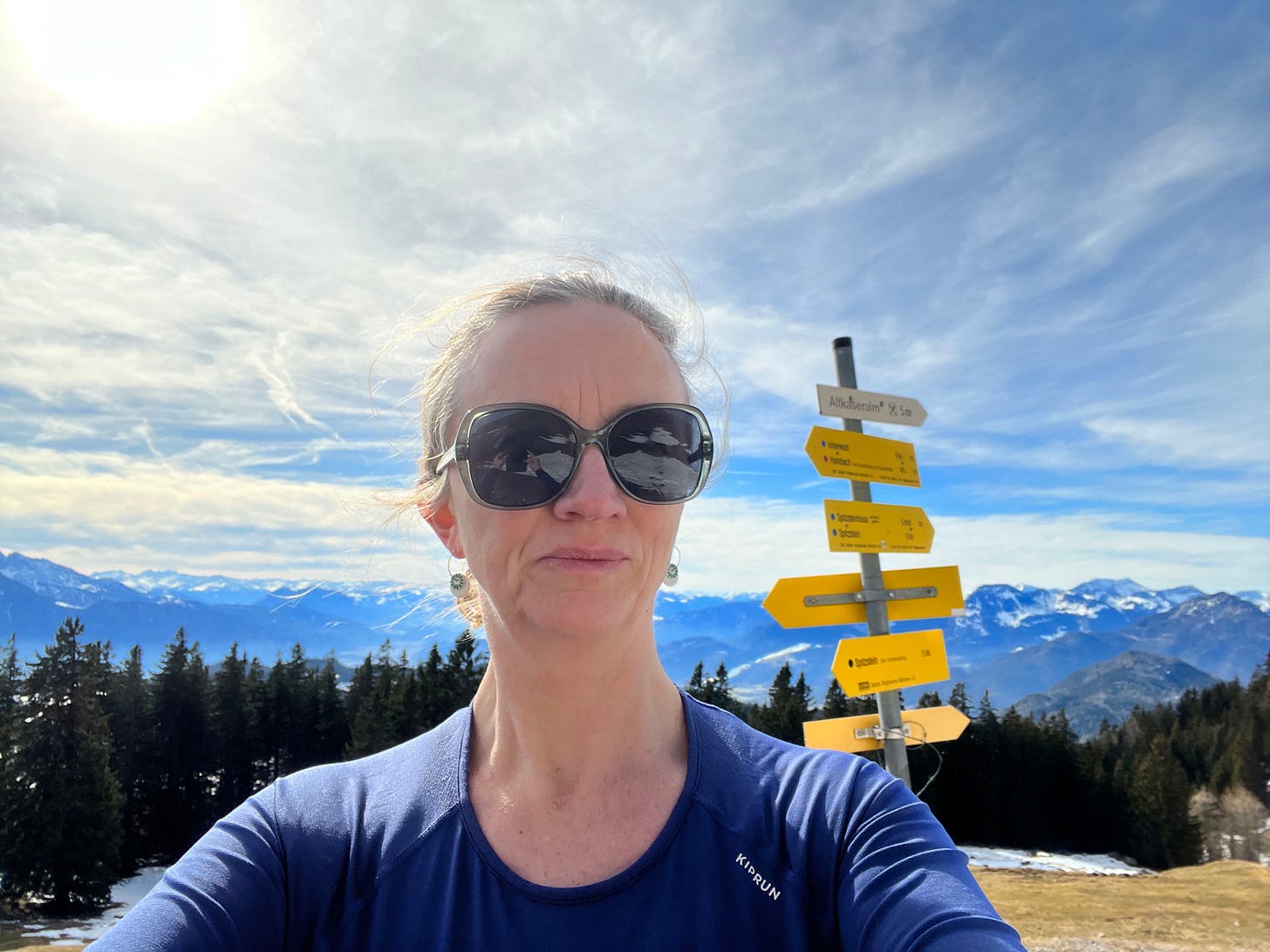I am always late for yoga. I arrive, breathless and sweaty from a hurried bike ride, when everybody else is already calmly sitting cross legged, ready for the first “Ommm”. I just can’t break this pattern.
I want to squeeze in “just one more thing” before leaving home, as the title of this newsletter suggests. I have long thought that this tendency was generally positive, making me productive and well suited to the fast-paced business of news agency journalism. But I have come to see its dark side - and not just my tendency to be in a rush.
I am not the best companion for a relaxing holiday, or any form of relaxation for that matter. I try to slow down by treating myself to an annual spa day treat for my birthday and then end up racing to try out as many different saunas and pools as possible in the allotted time, unable to doze on the loungers or slowly sip a smoothie.
I first understood that this version of “Hurry Up!” was my most powerful inner driver when I trained as a leadership coach in 2019. I was often late for those classes too and had to wait outside in the street until the instructor rang the bell to end the introductory meditation exercise. I find it hard to sit still for any mindful activity and feel faintly irritated by the serenity exuded by the Dalai Lama. It probably also explains why I was susceptible to burnout, and then later to “boreout” as I discussed in my last newsletter.
There is a psychological model called Transactional Analysis, which defines five inner drivers, of which “Hurry Up” is one. The others are “Be Strong”, “Try Hard”, “Be Perfect” and “Please Others”. The theory suggests that we internalise one or more of these drivers as coping mechanisms during childhood, and they become central to the way we live our lives, particularly when we are under pressure.
Hearing voices?
These drivers are not necessarily positive or negative, but an awareness of our unconscious inner voices can help us understand why we get stuck. In my coaching practice, I help people recognise these patterns and develop antidotes, so they can choose a different response. Once I realised how deeply rooted my impatience was, I was better able to see that a colleague was not necessarily snubbing me by responding slowly to a suggestion I made in an email. She just needed more time to consider my idea. The understanding helped me avoid a pointless conflict.
A first task in coaching is to find out which drivers are most important to you and what words you hear yourself saying on a regular basis. So, I discovered that my version of “Hurry Up!” is “ . . . just one more thing”. And the same driver might manifest itself in different people in completely different ways. My partner’s “please people” driver intersects with his “be perfect” voice to encourage him to mow the lawn very carefully so the neighbours think better of us. I would like him to mow the lawn faster (hurry up!) so my “please people” voice can invite the neighbours over for a barbeque.
You probably have a good idea already about your dominant drivers, but here is a tool that can help you understand them better. I would love to know which drivers are most common among my readers so click below in this anonymous poll to share.
I am still trying to understand the origins of my “Just One More Thing” compulsion. I don’t remember my parents hurrying me along that much. Certainly, relaxation is not common in my family: most of my ancestors toiled as farmers, rising at dawn to milk cattle. Childhood holidays usually involved marching up hills in the Lake District or Northumberland. This list of my New Year’s resolutions from when I was 11 and 12 show how much I absorbed the Protestant work ethic. Fortunately, I did improve my handwriting over the years, but keeping my room tidy is still a struggle.
Maybe my addiction to this kind of list-keeping and self-improvement started when I joined the Girl Guides. I was a “manic Brownie”, a description I am borrowing from banker and mother of nine Helena Morrissey. I filled my uniform sleeve with badges and carried on until I became a Queen’s Guide. I was helicopter parenting myself, without the need for anybody else to drive me on. In “How to do Nothing”, Jenny Odell suggests this kind of chronic busyness amounts to the “colonisation of the self by capitalist ideas of productivity and efficiency.”
Useful leisure
The Guide and Scout movement was set up a century ago as a response to perceived working class degeneracy because of rapid industrialisation and urbanisation. Girl Guide founder Agnes Baden Powell saw the movement as an opportunity for privileged women to mould “the girls of the factories and of the alleys of our great cities, who, after they leave school have no restraining influence”.
Patricia Whitney, a feminist scholar and a senior figure in the Canadian Girl Guides, said the early Guiding movement was designed to cultivate “useful” leisure. “The Victorians and Edwardians, with their reverence for the Protestant work ethic, could justify leisure only if it served to refresh one for labour,” she wrote. (Mindfulness, anyone?)
The idea of “useful” leisure has been hyper-charged by social media, particularly among girls. My boys seem pretty immune to this trend (unless you count video gaming or lounging on the sofa as “useful”). After years of trying to hurry my sons out of the door in time for school, I don’t see much evidence that they have internalised my dominant driver. In fact, they often seem to actively fight it. My 13-year-old son has had enough of hiking holidays and is begging me to take him somewhere hot beside a pool where he can do as little as possible.
Perhaps, as Dave Eggers suggests in his book “Heroes of the Frontier”, my driver is common among mothers: “… the crime of the ponytail ladies was that they were always in a hurry, in a hurry to exercise, in a hurry to pick up their children from capoeira, in a hurry to examine the scores from the school’s Mandarin immersion program, in a hurry to buy micro-greens at the new ivy-covered organic grocery…”
Multitasking and chronic busyness might be obvious markers of motherhood, but these can also be driven by “be perfect” or “please people” tendencies as much as by a desire to hurry up. There is a danger of projecting our own inner drivers onto other people to explain their behaviour, a reason it is helpful to be more aware of how these unconscious patterns work.
Hurry up before you have a baby
Of course, female biological clocks can also mean we rush to get ahead as quickly as possible in our careers. That is what pushed me to seek promotion to be a bureau chief in my early 30s. Consciously or not, many women want to make a mark before family commitments slow them down. A woman journalist I am mentoring in her late 20s admitted that is why she wants to work abroad as soon as possible - although she would never let on to a potential employer. This window to get established in a career is even smaller in Germany, where students often only leave university in their late 20s, one reason why the country has fewer women in executive positions than the international average.
Even after my coaching course, I must constantly fight my urge to hurry up. It is one reason why I love cycling: I am too impatient to drive or rely on public transport. Since the pandemic, I have forced myself to walk instead if I can (although that risks me being even later for yoga). And while the drivers framework can be useful, it does not explain everything. I recently did the ID37 personality test that digs into 16 motives that drive behaviour: physical activity comes out on top for me. So part of the reason I miss working in an office, is not just because I miss having colleagues, but because I no longer have 50 minutes of cycling baked into my day.
The ID37 test was particularly helpful because it told me how others might see me: the result was “restless, driven and difficult, with ‘ants in my pants’, always on the move and appearing rushed.” So now I understand why a friend suggested that going together on a beach holiday would not be the best idea as there wouldn’t be enough for me to do. It is also the reason why I find myself judging people, friends included, who prefer a calmer pace of life. Layabouts!
Since leaving Reuters last year, I have been busier than ever, taking on multiple projects as I make the most of my new freedom. By February, I was exhausted, so I booked a 4-day yoga retreat in the Alps. Did I sit and contemplate nature and read the books I brought with me? Of course not. I went hiking every day in between the yoga classes and returned home physically drained, although mentally recharged. Next time, I should find a retreat somewhere flat and rainy. Or in jail.
I do feel that my “Just One More Thing” driver has become somewhat healthier – instead of striving to achieve a lot, it now feels more like I am trying to suck the juice out of every day. It has become more of a “Carpe Diem” - or live for the day – vibe.
Perhaps I will finally slow down later this month when I spend three weeks in a tiny Spanish village working on a community project as part of The Break fellowship. Perhaps. Despite the name “The Break”, the organiser said we will be kept busy and I am juggling two personal projects at the same time. At least, it will be a break from hurrying teenagers out of the door in the morning. (Applications are open for the final round of the fellowship for women resident in the EU.)
A final word of thanks: I am delighted that 110 people have signed up for this newsletter in the last 6 weeks. I would love to hear what you think so far, and for you to share it with a friend.
What I am reading:
Sorrow and Bliss – Meg Mason – a beautiful story about mental illness, relationships and love: “I saw shame and hope and grief, guilt and love, sorrow and bliss, kitchens, sisters and mothers, joy, fear, rain, Christmas, gardens, sex and sleep and presence and absence..”
Pachinko - Min Jin Lee - a saga of a Korean family in Japan across four generations: “It had been eleven years since he’d died. The pain didn’t go away but its sharp edge had dulled and softened like sea glass”. (I usually carry a piece of sea glass from the beach in Northumberland in my pocket to remind me of home..)










My nest is emptying and I'm looking at reinventing myself for the next phase of my life. I'd like to move more especially if I can avoid the horrid cold. I'm fascinated by your process. I think maybe we are just continually arriving somehow
Sending you love
It's so lovely reading you Emma. Definitely have had a hurry up driving my life and at 51 I'm wondering where I'm hurrying to. Thank you for sharing your experience